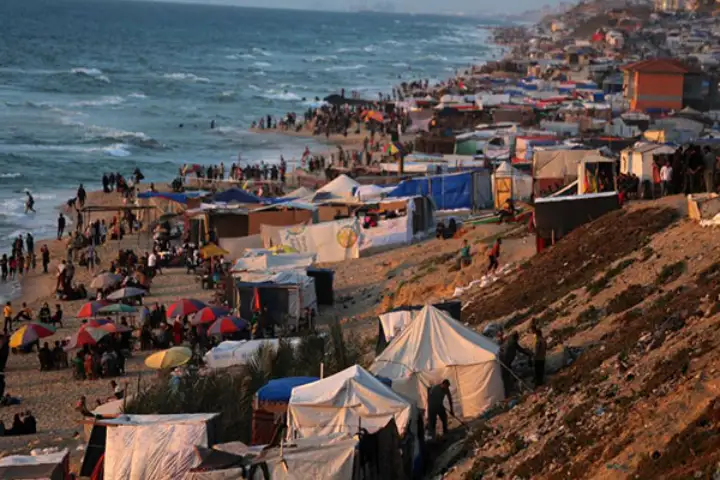The United Arab Emirates is emerging as a hardline critic of the Palestinian Authority at the annual Arab League summit in Bahrain, refusing to back a significant budget until Ramallah makes sweeping changes such as halting payments to terrorists and ending incitement.
“In this way, the Emirates is aligning itself with the American position that strives for a new Palestinian Authority,” a high-level Arab diplomat told The Press Service of Israel.
Behind the scenes, tensions have escalated as the Emirates blocked a proposed resolution to allocate USD 100 million monthly to the PA, citing concerns about corruption and ineffective leadership. The Emiratis also demanded measures for PA financial transparency and preventing corruption in the PA, which infuriated the Palestinian delegation.
“The Emiratis practically emptied the initiative to budget the Palestinian Authority of any content,” the diplomatic source explained to TPS-IL. “The refusal of the Emiratis to budget a corrupt authority should not surprise anyone.”
The UAE’s stance challenging President Mahmoud Abbas’s leadership has garnered support from Israeli Defence Minister Yoav Galant, who would recognise PA authority in a post-war Gaza. However, the PA continues to boycott the US, and Secretary of State Anthony Blinken, following the US veto of a UN Security Resolution that would have given the Palestinians full UN membership.
“The Emirates have openly decided to align themselves with the Biden administration, which repeats and claims that only a new and reformed Palestinian Authority can be a partner in the eyes of the Americans the day after the war in the Gaza Strip,” the source told TPS-IL.
“The Emiratis have decided to teach the Palestinian Authority a lesson, and they are demanding from it a long series of reforms that will transform it from a Palestinian Authority into a completely different entity. Only when the Palestinian Authority is not Palestinian will it be kosher in the eyes of the Emirates,” he added mockingly.
The UAE is backing Abbas rival Muhammed Dahlan. In conversations with several Arab sources, Dahlan’s name repeatedly comes up as someone who would win their support in managing post-war Gaza.
Dahlan, once a high-level figure within Fatah, was the PA’s “strong man” in Gaza when Hamas violently seized control of the Strip in 2007. But as Dahlan regained influence within Fatah, he fell out with Abbas and was expelled from the party in 2011. He was later tried in absentia in Ramallah on charges of corruption, which Dahlan denies.
TPS-IL has learned that during a recent conference of Arab diplomats on Zoom in April, participants voiced opposition to Abbas’s rule. Palestinians have not held national elections since 2005 and Abbas is now in the 19th year of what was supposed to be a four-year term. Since then, Abbas has cancelled several attempted elections amid Fatah-Hamas disagreements, most recently in 2021.
The US has been pressuring Abbas to reform the PA as a precursor to taking responsibility for the administration and reconstruction of Gaza.
Reforms include cutting down the PA’s bloated and inefficient bureaucracy, replacing diplomats representing the PA abroad, and initiating an internal self-investigation mechanism within the Palestinian Preventive Security.
Ramallah is hoping to satisfy US demands with, among other things, a Palestinian technocratic government that includes “softcore” Hamas members and indirect “pay-for-slay” funding.
However, nobody in Ramallah believes Abbas will see the reforms through. A March survey by the Palestinian Centre for Policy and Survey Research found 81 per cent of the Palestinians polled in Judea, Samaria and Gaza dissatisfied with Abbas’s leadership and 84 per cent said they wanted him to resign.
Palestinians have not held national elections since 2005 and Abbas is now in the 19th year of what was supposed to be a four-year term. Since then, Abbas has cancelled several attempted elections amid Fatah-Hamas disagreements, most recently in 2021.
At least 1,200 people were killed and 240 Israelis and foreigners were taken hostage in Hamas’s attacks on Israeli communities near the Gaza border on October 7. Around 30 of the remaining 132 hostages are believed to be dead.




















